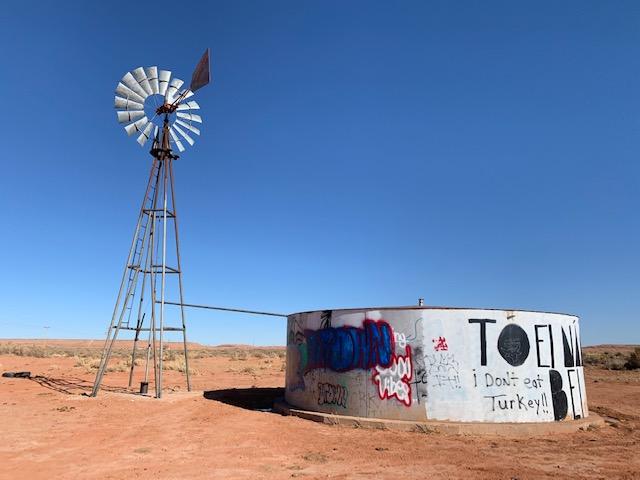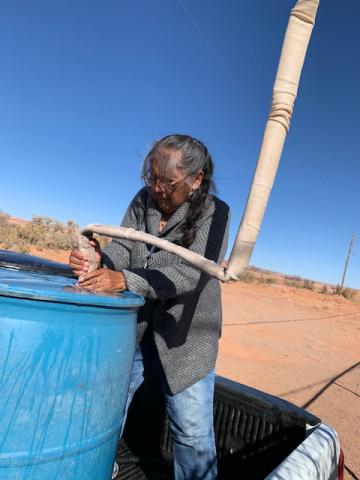 VIEW LARGER Many Navajo haul non-potable water from windmills like this one for their sheep and to do the washing.
VIEW LARGER Many Navajo haul non-potable water from windmills like this one for their sheep and to do the washing. As health officials urge us to wash hands to prevent the spread of the coronavirus, 2 million Americans without access to clean running water have become some of the most vulnerable. On Thursday, the Navajo Nation reported 69 cases of COVID-19, the disease caused by the coronavirus.
About 40% of Navajos must drive several miles to haul their water, and many still use outhouses. Shanna Yazzie, who lives in Cameron, drives 50 miles for her drinking water, groceries and other necessities.
"My mother was asking, 'When are we taking the trash out?'" Yazzie said. "We have four bags of trash and we have to drive into Tuba City. To do that and to do laundry, I'm scared to go do laundry right now. We have a small laundromat here in the community, kind of risky for us right now, so our laundry is getting piled up."
 VIEW LARGER Darlene Yazzie, a retired community health worker, says hauling water, firewood and trash, and using an outhouse are just a few of the things that make life hard on the Navajo Nation.
VIEW LARGER Darlene Yazzie, a retired community health worker, says hauling water, firewood and trash, and using an outhouse are just a few of the things that make life hard on the Navajo Nation. With H1N1 in 2009, American Indians and Alaska Natives had mortality rates that were four times the rates of all other racial and ethnic groups combined. That's according to a study by the National Institutes of Health.
There are concerns COVID-19 may have a significant impact.
Emma Robbins, who grew up on the Navajo Nation but now lives in Los Angeles, said it's difficult for families like hers who are separated. She wants to go back and be with her dad in Tuba City. The tribe has asked all visitors to stay away.
"The police officers are going around on the loudspeaker encouraging everyone to stay in their homes," Robbins said. "But also saying that if you are showing symptoms and need to go to the hospital to call ahead so they can have a plan to get you in separate from everybody else."
The Tuba City hospital is offering drive up care so you don't have to be in a waiting room with other people who are possibly infected.
Eds.: This version of the story updates the numbers to the most recent available.


By submitting your comments, you hereby give AZPM the right to post your comments and potentially use them in any other form of media operated by this institution.